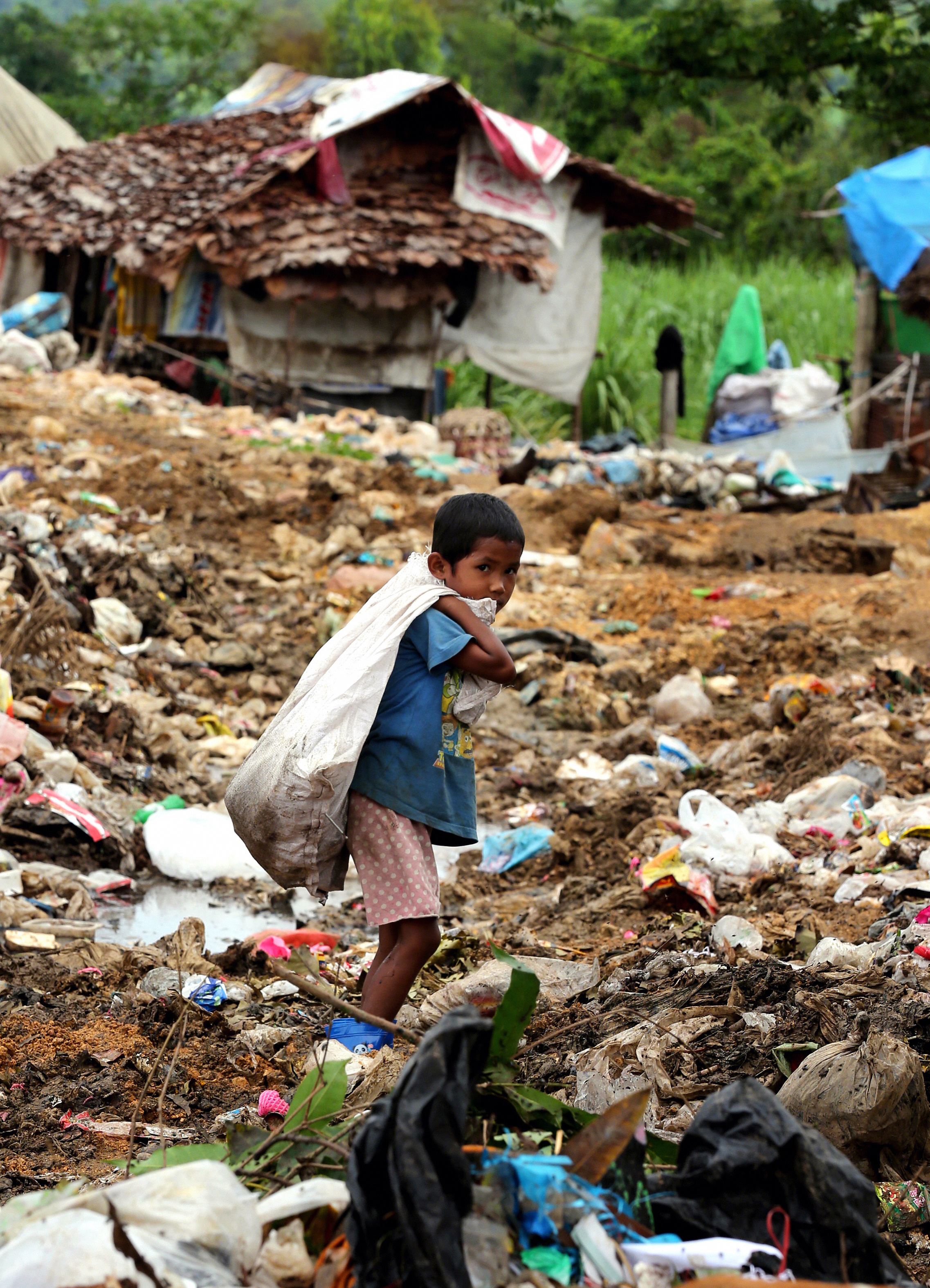
A 13-year-old Burmese girl who was tortured for five years by a Thai couple who treated her as a slave has finally been awarded $143,000 in compensation by a local court, ending one nightmare but throwing the spotlight on the plight of countless other vulnerable migrants who suffer similar abuse.
The victim, who was just 7 years old when she was sold into slavery, must live with horrendous scars over half her body after she was regularly drenched with pots of boiling water for perceived disobedience. (The extent of her disfigurement can be seen on this Thai news report, but be warned — the images are distressing.)
The girl, an ethnic Karen known as Air, says she was kidnapped while her illegal-migrant parents were working in sugarcane fields in northwest Thailand. She was then sold to a Thai couple who made her work as a maid and sleep in a dog kennel. Air says she escaped once and summoned the police, only to be returned to her abusers, who allegedly cut off the tip of her ear as punishment. The girl eventually escaped successfully on Jan. 31 last year.
“The couple is still at large, but lawyers will investigate all of the employers’ properties to compensate her,” Preeda Tongchumnum, the assistant to the secretary general of the Bangkok-based Human Rights and Development Foundation, told the Irrawaddy. “She cannot make a 100% recovery, but the doctor will help her to move her body like any other person.”
Although Monday’s award must be deemed a victory of sorts, the uncomfortable truth remains that the girl’s plight mirrors that of many of the estimated 4 million migrant workers in Thailand, who toil with virtually no legal safeguards and are often exploited by venal officials.
Compounding matters, the couple accused of torturing Air — identified as Nathee Taengorn, 36, and Rattanakorn Piyavoratharm, 34 — skipped town after they were inexplicably released on police bail despite facing seven serious charges. Local media reports alleged the pair had “influential” connections. The police have yet to offer an explanation for Air’s claim that they returned her to her captors after her first escape bid.
Such official indifference to the plight of migrant labor has contributed to the U.S. State Department’s decision last month to relegate Thailand to the lowest rank of its Trafficking in Persons report — putting the self-styled “Land of Smiles” on par with North Korea for its inability or unwillingness to protect workers from abuse.
“There cannot be impunity for those who traffic in human beings,” said U.S. Secretary of State John Kerry to mark the report’s release. “Whether it is a young girl trapped in a brothel or a woman enslaved as a domestic worker or a boy forced to sell himself on the street or a man abused on a fishing boat, the victims of these crimes all have names, all had families.”
Sadly, all four of the examples citied by Kerry are commonplace in Thailand, which has long been a hub for migrant laborers fleeing war, poverty or political persecution in less affluent neighboring countries. The Thai fishing industry has come into particular scrutiny recently.
This already dire situation has been further complicated by Thailand’s military coup on May 22. Fears of a crackdown prompted an exodus of more than 250,000 mainly Cambodian workers, although the junta insists that by requiring all companies to “submit comprehensive name lists of their employees” it is now working to prevent “illegal activity, drugs, crime, unfair employment and bodily harm.”
Such assurances have not convinced human-rights activists, though. “Migrant workers make huge contributions to Thailand’s economy, but their daily life is unsafe and uncertain, and they face abuses from many quarters,” Brad Adams, Asia director for Human Rights Watch, said in a statement, calling for the junta to “reverse this [exodus] disaster by quickly putting into place genuine reforms that would protect migrant workers’ rights, not threaten them.”
More Must-Reads From TIME
- The 100 Most Influential People of 2024
- Coco Gauff Is Playing for Herself Now
- Scenes From Pro-Palestinian Encampments Across U.S. Universities
- 6 Compliments That Land Every Time
- If You're Dating Right Now , You're Brave: Column
- The AI That Could Heal a Divided Internet
- Fallout Is a Brilliant Model for the Future of Video Game Adaptations
- Want Weekly Recs on What to Watch, Read, and More? Sign Up for Worth Your Time
Write to Charlie Campbell at charlie.campbell@time.com